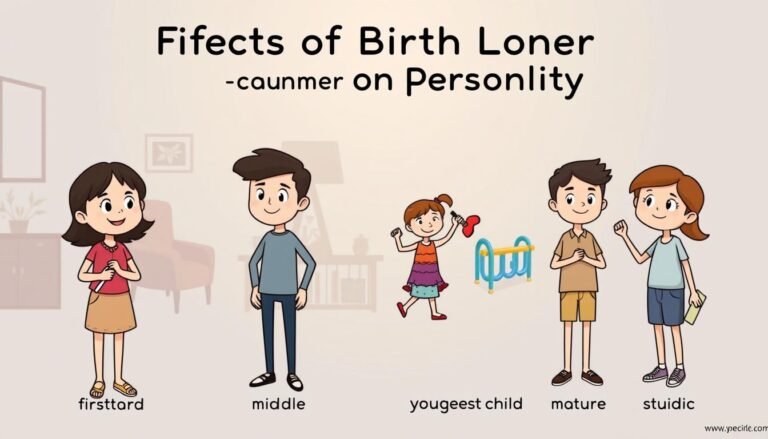Understanding Personality and Trauma: Key Insights
Sarah, a vibrant college student, never expected her life to change so drastically after a car accident. She struggled with anxiety and mood swings, realizing the impact of trauma on her personality. Her story is not unique. Over half of adults in the United States report at least one traumatic experience in their lifetime.
Trauma exposure varies across demographics, with men reporting slightly higher rates than women. A recent study involving 831 participants (442 women and 389 men) revealed interesting patterns. Women tended to report more high-betrayal trauma, while men experienced more low-betrayal trauma. These findings highlight the complex relationship between personality and trauma, emphasizing the need for a deeper understanding of how adverse childhood experiences shape our emotional intelligence and resilience.
Research indicates that childhood trauma can have lasting effects on adult personality development. For instance, the indirect paths from childhood conscientiousness to adult dysregulation and BMI through total teen and adult trauma were significant for women but not for men. This suggests that early experiences play a crucial role in shaping our ability to cope with stress and maintain emotional balance later in life.
As we delve into the intricate connection between personality and trauma, it’s essential to recognize the importance of trauma-informed care. This approach shifts the focus from “What’s wrong with you?” to “What happened to you?” By understanding the impact of adverse experiences on both patients and providers, we can work towards better health outcomes and improved overall well-being.
Key Takeaways
- Over 50% of U.S. adults report at least one traumatic experience
- Trauma exposure varies by gender and demographics
- Childhood trauma impacts adult personality development
- Trauma-informed care focuses on understanding past experiences
- Emotional intelligence and resilience play crucial roles in trauma recovery
The Nature of Trauma and Its Impact on Personality
Trauma deeply changes our lives. It can change how we see the world and interact with others. Understanding trauma helps us see how it affects our personality and identity.
Defining trauma in psychological terms
Trauma is a deeply distressing experience that makes it hard to cope. The American Psychological Association says it’s an emotional response to terrible events like accidents or natural disasters. These events can lead to PTSD, changing how our brains work.
How trauma affects personality development
Trauma can greatly change a person’s personality. People might become withdrawn or start risky behaviors. The effects can last a long time, affecting how we cope and form our identity.
Brain structures like the amygdala and hippocampus can change. This affects how we feel emotions and remember things.
The role of adverse childhood experiences
Childhood trauma has big effects later in life. It’s linked to health problems like heart disease. Early trauma can mess up normal personality growth.
This can make it hard to form close relationships and manage emotions.
| Trauma Response | Prevalence | Impact on Personality |
|---|---|---|
| Freeze | 90% | Increased anxiety, withdrawal |
| Fight or Flight | 10% | Heightened aggression or avoidance |
| Delayed Reaction | Varies | Long-term personality shifts |
While trauma can deeply affect personality, recovery is possible. With the right support, people can become resilient and grow. Healing often means learning new ways to cope and finding a new sense of self.
Personality and Trauma: Exploring the Connection
The relationship between personality traits and trauma is complex. Research shows that early life experiences can shape our personalities. This can make us more vulnerable to trauma later on.
Studies on inmates show a link between early trauma and criminal behavior. Children who face long-term trauma are more likely to develop personality disorders. They may also be more prone to violent behavior. This shows how early experiences can affect our personalities and behavior.
Borderline Personality Disorder (BPD) often comes from childhood trauma. This includes sexual, physical, and emotional abuse. People with BPD find it hard to express their feelings, especially if they’ve been through trauma.
This makes it tough for them to keep healthy relationships and handle stress well.
Trauma can also cause dissociation. This is when someone loses memories, feels detached, and has identity issues. In severe cases, it can lead to Dissociative Identity Disorder (DID). Here, different personality states may show dangerous behaviors.
| Trauma Type | Potential Personality Impact | Associated Risks |
|---|---|---|
| Childhood Abuse | Emotional detachment, perfectionism | BPD, criminal behavior |
| Prolonged Trauma | Identity issues, dissociation | DID, C-PTSD |
| Neglect | Insecure attachment styles | Relationship difficulties |
It’s important to understand how personality and trauma are connected. This knowledge helps in creating better treatments. It also helps in building resilience in those who have been through trauma. Mental health professionals can then support people better in their recovery.
The Big Five Personality Traits and Their Relation to Trauma
The Big Five personality traits are key in understanding how we handle trauma. These traits are Neuroticism, Extraversion, Openness, Agreeableness, and Conscientiousness. A study with 332 Israeli citizens in the south region of Israel shows how these traits affect our trauma responses.
Neuroticism and Trauma Susceptibility
Neuroticism is closely linked to being more susceptible to trauma. Research shows that those with high neuroticism scores struggle more when faced with threats. In the Israeli study, neuroticism was linked to more anxiety, stress, and PTSD symptoms.
Conscientiousness as a Protective Factor
Conscientiousness acts as a shield against trauma. People with high conscientiousness use strategies to tackle problems head-on. This trait helps in adapting better to stress and reduces negative effects.
Openness, Extraversion, and Agreeableness in Trauma Recovery
Openness, extraversion, and agreeableness help in recovering from trauma. Those high in extraversion use active strategies and seek support. These traits help in adapting to stress and lower PTSD symptoms.
| Personality Trait | Impact on Trauma Response | Coping Strategy |
|---|---|---|
| Neuroticism | Increased susceptibility | Emotion-focused coping |
| Conscientiousness | Protective factor | Problem-focused coping |
| Openness | Aids recovery | Positive reinterpretation |
| Extraversion | Promotes adaptation | Active coping, social support |
| Agreeableness | Facilitates recovery | Growth-oriented coping |
Knowing how personality traits affect trauma responses can help in creating better interventions. This knowledge can improve recovery outcomes for those experiencing trauma.
Childhood Personality Traits as Predictors of Trauma Exposure
Research shows that childhood personality traits are key in predicting trauma exposure. A study of 20,749 children aged 7-15 years found interesting insights. It showed how early personality development links to trauma risk.
The study found that 58.4% of individuals were exposed to trauma in childhood. About 5.5% developed PTSD. Certain temperament traits were linked to higher trauma exposure.
Children with higher levels of Intensity faced a 23% higher risk of trauma exposure. They also had a 27% higher risk of PTSD.
Interestingly, children in the Medium and Difficult temperament clusters had about 1.5 times higher odds of trauma exposure. This compared to those in the Easy cluster. It shows early psychological development is key in shaping vulnerability to traumatic experiences.
- Higher Activity levels correlated with increased trauma exposure
- Greater Adaptability was associated with more trauma encounters
- Mood and Threshold temperament traits also influenced trauma exposure rates
The study also found that high levels of negative emotionality increased the risk of psychiatric symptoms after interpersonal violence. This highlights the need for early intervention and support for children with challenging temperaments. It aims to mitigate potential trauma impacts.
“Understanding childhood personality traits can help us identify and protect vulnerable children from potential trauma exposure, ultimately promoting healthier psychological development.”
The Impact of Trauma on Adult Personality Development
Trauma can deeply affect how adults see and interact with the world. Studies show strong links between traumatic events and lasting changes in personality.
Reactive Trait Processes in Trauma Survivors
Survivors of trauma often show changes in their personality. A study found that 35.7% of those with probable personality disorders started experiencing issues after war trauma. They were more likely to show traits like schizotypal and schizoid compared to those with disorders before trauma.
Long-term Personality Changes Following Traumatic Experiences
Traumatic events can cause lasting changes in personality. Survivors may see changes in how they feel, their beliefs about the future, and how they interact with others. They might feel tired all the time, have trouble sleeping, feel anxious, or avoid things that remind them of the trauma. These changes can greatly affect how they develop as a person and their ability to cope with stress.
Resilience and Post-traumatic Growth
Even though trauma can be hard, many survivors show great resilience. They often find ways to cope and recover over time. Some even grow stronger and more resilient, showing a newfound appreciation for life and better relationships.
“Trauma recovery is not just about healing the past, but also about building a stronger, more resilient future.”
It’s important to understand these effects to help with trauma recovery and support healthy development after traumatic experiences.
Trauma Types and Their Differential Effects on Personality
Trauma classification is key to grasping how it affects people. A study with 433 adults, averaging 43.81 years old, shows how various traumas change personalities.
About 90% of Americans face at least one traumatic event. The kind of trauma greatly affects how they handle emotions and their overall happiness.
Experiences like sexual or physical violence lead to more emotional turmoil. These traumas often cause deeper changes in personality than other types.
On the other hand, accidents or injuries might have a different effect. For those with PTSD, these traumas are linked to less emotional upset. This shows that different traumas can lead to different emotional responses.
Long-term trauma can cause serious issues. It may lead to anxiety, depression, and trouble in relationships. These effects show how deeply trauma can impact personality.
It’s important to understand these differences for better treatment. Mental health experts can then create more effective plans by knowing the specific trauma’s impact.
The Role of Emotional Intelligence in Trauma Recovery
Emotional intelligence is crucial for healing after trauma. It helps us grow and recover from tough times. Over 70% of adults face major trauma in their lives. Learning to understand and manage our feelings can make a big difference.
Developing Emotional Awareness After Trauma
Trauma can make it hard to understand our emotions. The first step to healing is becoming more aware of our feelings. This means noticing how we feel and why. It’s like turning on a light in a dark room. We start to see things more clearly.
Emotion Regulation Strategies for Trauma Survivors
Once we know our feelings, we can learn to manage them better. This is called emotion regulation. It’s a key part of emotional intelligence. Some helpful ways to do this are:
- Deep breathing
- Mindfulness
- Talking to supportive friends
- Writing in a journal
Building Emotional Resilience Through Therapy
Therapy can help build emotional resilience. This is our ability to bounce back from hard times. A good therapist can teach us skills to understand and handle our emotions better. They can also help us see our strengths and grow from our experiences.
Emotional intelligence isn’t something we’re born with. It’s a skill we can learn and improve. By working on it, we can boost our psychological resilience and support our trauma recovery journey.
Attachment Styles and Their Influence on Trauma Responses
Attachment theory helps us understand how early relationships shape our trauma responses and how we connect with others. Childhood experiences are key in forming attachment styles that last into adulthood.
Trauma can greatly affect our attachment patterns. Abuse, neglect, or inconsistent care can lead to insecure attachment styles. These styles shape how we deal with traumatic events and form relationships later on.
Studies show that insecure attachment styles are linked to more trauma-related symptoms. A study found that 48% of infants with disorganized attachment had experienced abuse or neglect. This shows a strong link between early trauma and attachment issues.
“Healing from attachment trauma is possible through building safety, seeking consistency, and repairing ruptures in relationships.”
Knowing about attachment styles can guide trauma treatment. Therapists can create specific plans to address attachment-related challenges. This helps individuals develop better coping strategies and improve their relationships with others.
| Attachment Style | Potential Trauma Response | Relationship Impact |
|---|---|---|
| Secure | Better coping and resilience | Healthy, stable relationships |
| Anxious | Heightened emotional reactivity | Fear of abandonment, clinginess |
| Avoidant | Emotional suppression | Difficulty with intimacy, emotional distance |
| Disorganized | Inconsistent trauma responses | Chaotic relationships, trust issues |
Therapeutic Interventions for Trauma-Induced Personality Changes
Trauma therapy is key in dealing with changes in personality due to trauma. Over 70% of people have faced a traumatic event. So, finding effective ways to help them recover is vital.
Cognitive-behavioral approaches to trauma treatment
Cognitive-behavioral therapy (CBT) is a mainstay in treating trauma. It helps people change their thoughts and actions tied to trauma. For kids and teens, trauma-focused CBT (TF-CBT) works well.
EMDR and other trauma-focused therapies
Eye Movement Desensitization and Reprocessing (EMDR) is a strong method for dealing with traumatic memories. It uses eye movements to help process distressing events. Other good methods include Accelerated Resolution Therapy (ART) and Cognitive Processing Therapy (CPT).
Integrating personality assessment in trauma treatment
Adding personality assessments to trauma therapy makes treatment more personal. It looks at each person’s traits and how they cope. This can lead to better results and help in the long run.
| Therapy Type | Focus | Effectiveness |
|---|---|---|
| Cognitive-behavioral therapy | Thoughts and behaviors | High for various trauma-related disorders |
| EMDR | Memory reprocessing | Effective for PTSD and trauma |
| Art and music therapy | Creative expression | Helpful for emotional processing |
| Narrative Therapy | Reframing personal stories | Challenges negative beliefs effectively |
Conclusion
The link between personality and trauma is complex and affects mental health deeply. Our look into trauma research and personality psychology shows how they interact. This interaction shapes how people experience and recover from trauma.
A study of 327 people in Poland from 1939 to 1968 gives us important insights. It shows how trauma in childhood can lead to adult behaviors like perfectionism or eating disorders. The attachment theory also shows how early experiences affect adult relationships.
This research shows we need to tailor therapy to each person’s personality and attachment style. As we learn more about trauma and personality, using this knowledge in mental health is key. Understanding trauma’s effects on different ages and experiences helps us create better treatments.
This approach can improve recovery and build resilience in survivors. It’s a big step forward in trauma-informed care.
Source Links
- Lifetime Trauma, Personality Traits, and Health: A Pathway to Midlife Health Status
- The clinical course of trauma-related disorders and personality disorders: study protocol of two-year follow-up based on structured interviews
- Key Ingredients for Successful Trauma-Informed Care Implementation
- The Impact of Trauma on Personality | Grouport Journal
- The Nature and Impacts of Trauma – Resolution Counselling
- The Nature of Trauma and Its Effect on the PTSD Brain – Family Psychiatry & Therapy
- Exploring the connection between childhood trauma, dissociation, and borderline personality disorder in forensic psychiatry: a comprehensive case study
- Shaping the Self: How Childhood Trauma Influences Personality – Portal Wellness Collective
- A Model for Predicting Post-Traumatic Stress Disorder due to Exposure to Chronic Political Violence: Big Five Personality Traits, Ego-Resiliency, and Coping
- Personality Factors and Their Impact on PTSD and Post-traumatic Growth is Mediated by Coping Style Among OIF/OEF Veterans
- Satisfaction with Life, Big-Five Personality Traits and Posttraumatic Growth Among People Living with HIV – Journal of Happiness Studies
- Examining the relationship between early childhood temperament, trauma, and post-traumatic stress disorder
- The role of trauma experiences, personality traits, and genotype in maintaining posttraumatic stress disorder symptoms among child survivors of the Wenchuan earthquake – BMC Psychiatry
- Lasting personality pathology following exposure to severe trauma in adulthood: retrospective cohort study – BMC Psychiatry
- Understanding the Impact of Trauma – Trauma-Informed Care in Behavioral Health Services
- How Childhood Traumatic Experiences Shape Elements of Adult Personality and Mental Health
- The differential relation of trauma types with negative and positive emotion dysregulation
- Types of Trauma | Charlie Health
- The Different Types of Trauma Explained — Talkspace
- Frontiers | How past trauma impacts emotional intelligence: Examining the connection
- Emotional Intelligence and Healing Hidden Wounds
- Applying Emotional Intelligence to Our Lives
- Attachment Trauma: How Childhood Trauma Can Shape Your Attachment Style as told by a Therapist — White Rock Therapy – Trauma Counseling Texas & New Jersey
- Trauma’s Impact on Attachment – TeachTrauma
- Trauma-Informed Therapy – StatPearls – NCBI Bookshelf
- Trauma-Focused Therapy Techniques
- Effect of trauma onset on personality traits of politically persecuted victims – BMC Psychiatry
- Pathways Between Psychological Trauma and the Development of Personality Disorders
- How Childhood Trauma Shapes Your Personality








